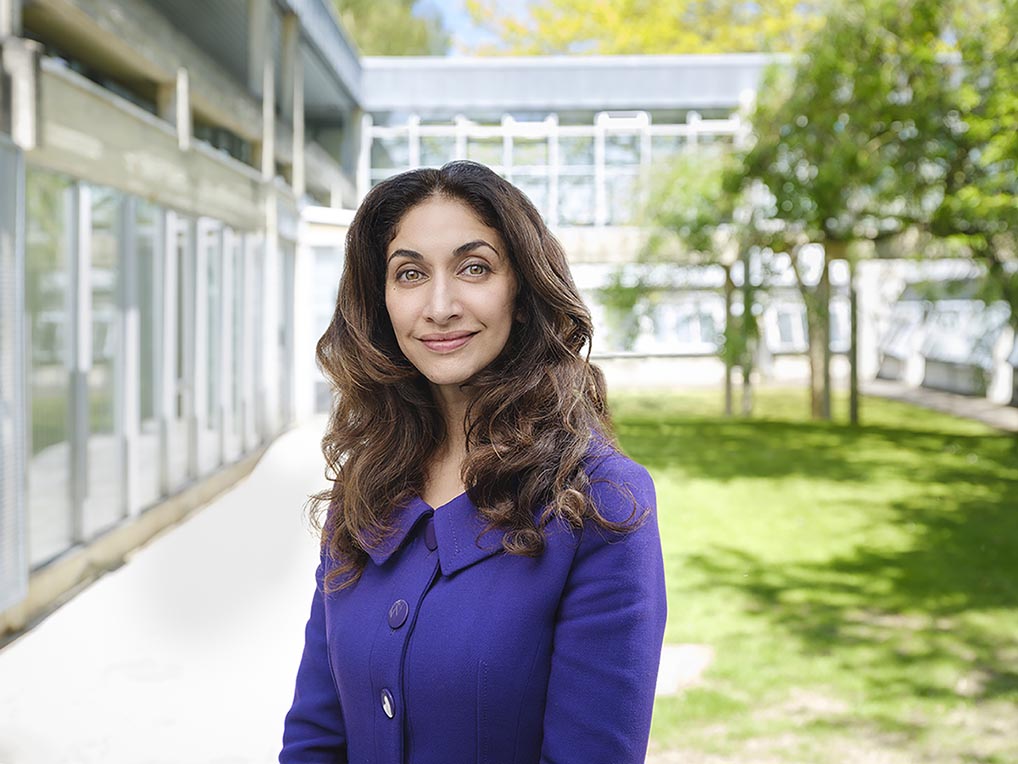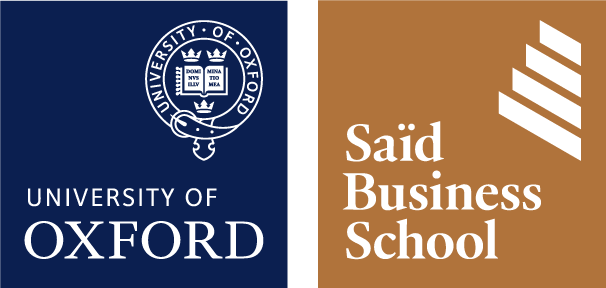Viewpoint
Caroline Williams
Portrait: Peter Searle
The most important thing we do with our Open Programmes is create space.
Senior leaders today are trying to navigate disruption on multiple fronts – technical, competitive, environmental and political. There is so much noise, so many demands on their time, and so many people trying to get to them – there is a real risk of them feeling almost suffocated. To preserve health and balance they need space to stop, to step out of their organisation, take a breath and change energy.
Senior leaders are trying to navigate disruption on multiple fronts – technical, competitive, environmental and political
People quite often describe Oxford as a ‘sanctuary’ or a ‘retreat’. But that does not go far enough in explaining what really happens here. People are coming to an environment in which an intense knowledge exchange takes place. They have conversations with unique clusters of people that they simply cannot reassemble anywhere else. And in the process of these conversations they reset their compass. They leave ‘lighter’ in many ways, more purposeful, and often with the sense that this was only the start of their learning journey.
The knowledge exchange comes in part from our faculty, who are constantly generating new ideas and bringing them into the programme space; it comes from you, the participant, and your insights and experiences; and then, of course, from the people beside you, through their insights, reflections and experiences. While all of this knowledge pours into the ‘space‘, you get time to explore it and test it, and put new ideas together.
Much of it is about applying different lenses. So you might start with an understanding of the global context, interpreting how the ripples caused by different events interact and create new ripples in other directions. But then you take a finer look at which part of this is relevant for you, before shifting focus to see where your ripple might influence others.
What type of equity should we be building for our shareholders – is social the new normal?
This prompts some serious and sometimes difficult questions. How much of the global research and development budget is being spent well on development that is really important? For example, in 2015, about 526,000 children under the age of five died of diarrhoeal-disease according to UNICEF – together, how are we stopping this? What type of equity should we be building for our shareholders – is social the new normal? Serious players such as Blockchain offer a game-changing opportunity – so what might the new ecosystem look like and where do you stand out? As Millennials hunt for connection to greater purpose, where are you sending them? How profitable do you want to be? How do you engage authentically with communities and wider society?
And then we take the ideas further. But how do you push water up a hill (because it can feel like that)? Who can you collaborate with – starting with the 39 other people sitting with you in the classroom? With so many of our programmes, from Impact Investing and Women Transforming Leadership to Private Equity and Corporate Governance, we find that ideas that have started in Oxford have expanded and taken on a life of their own beyond the programme as part of a greater ecosystem. We work hard with our networks of global partners to deliberately create environments which ignite, enrich and push forward ideas collaboratively.
We’re not providing teaching; we’re creating an environment in which people can reflect, learn and challenge themselves to lead…
We take our Financial Times ranking of number one in the UK since 2015 and our recent position of fourth in the world for an Open Programmes experience very seriously – and the stories in the pages that follow are a validation of our approach. They show that what we’re doing really matters.
We’re not providing teaching; we’re creating an environment in which people can reflect, learn, and challenge themselves to lead purposefully and mindfully, conscious of both the consequences of their choices and the impact they can have in their organisations, on their industry and the world.
